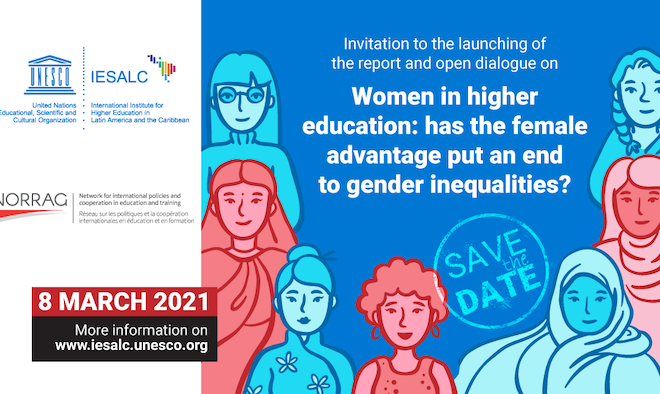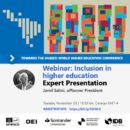Making the link for SDG 4: Higher education governance and the quality and equity of higher education systems

Sustainable Development Goal 4 (SDG 4) commits all countries to equal access to affordable and quality education, including higher education, by 2030. This means that education systems need to be governed in ways that enable the achievement of the SDGs. In higher education, the system in each country varies but in broad terms refers to the way the system is organized and how it is funded. This affects, for example, what type of institutions are allowed to provide higher education (e.g. universities, colleges, public providers, private providers) as well as who is permitted to make decisions concerning teaching, research and community engagement.
There have been many studies of higher education governance around the world, but less is known about the impact of different governance models on the quality and equity of higher education systems. Does the way a higher education system is governed impact its quality? Do different models of governance improve equity in higher education systems? What are the similarities and differences between countries based on the organization of their higher education systems and other contextual factors?
UNESCO IESALC set out to explore these questions in the context of self-regulation, an increasingly widespread form of higher education governance. The results were published in July 2022 in the open access article ‘The impact of self-regulation in the governance of European higher education systems on quality and equity’. The article is part of a forthcoming special issue on higher education decentralization in the peer-reviewed journal Hungarian Education Research Journal.
As the article explains, “Self-regulation in relation to higher education governance refers at system level to the ability of higher education institutions (HEIs) to decide freely and independently how to perform their tasks.” The article is an evidence-based contribution to debates about self-regulation in higher education systems that presents for the first time a self-regulation index designed by UNESCO IESALC to measure and compare the links between self-regulation in higher education, quality, and equity.
The self-regulation index draws from over 70 data points per country that examine indicators relating to quality and equity over a recent five-year period. By comparing data over time, the index offers a comparison of changes (both positive and negative) in the cases. This first version of the index was trialled with five countries: England, Finland, France, Germany, and the United States. The article reports on the four European cases. The case choices were based on the availability of comparable data and also connected to a broader study on self-regulation by UNESCO IESALC (with ten global case studies) that will be published later in 2022.
Drawing from previous studies of higher education governance in international comparative perspective and based on the available data, the self-regulation index is divided into five areas:
- Control and quality evaluation: how higher education is controlled and evaluated; what is controlled and how quality is assured and improved.
- Funding: the main funding base for higher education, funding allocation mechanisms, and the extent to which HEIs can determine their budget allocations.
- Strategy and structure: who sets HEIs’ mission, vision, and academic profile, and how student number allocations are determined.
- Personnel: how HEI leaders and high-level academic staff are appointed and dismissed; the composition of HEI governing bodies where they exist.
- Teaching and research: who decides which degrees will be offered, which courses students need to study to complete a degree, as well as who awards degrees. How the research mission of the HEIs (if applicable) is set and how research is funded.
The populated self-regulation index was then compared to four indicators of quality and equity in higher education: institutional quality (calculated using a proxy based on standings in global university rankings) labour market outcomes (as assessed by graduate employment rates), enrolment rates and completion (graduation) rates.
Based on this initial assessment, there was no obvious link between self-regulation, the environments in which self-regulation flourishes, and better quality and equity in higher education. Furthermore, government policies in the case study countries that have aimed to increase self-regulation do not always lead to higher levels of self-regulation.
As such, to expand the possibilities of improving access and equity in higher education, as demanded by SDG 4, there is a need for both more policy steering by governments and more autonomous initiatives by higher education institutions located within education systems. It is also important to note that increasing self-regulation without other accompanying measures does not guarantee increased quality in higher education – and the opposite is also true.
Through the wider audience the self-regulation index will reach thanks to the recently published article and forthcoming report, it is hoped that the self-regulation index can be further developed. It can be trialled using the case of other countries in different world regions; the proxies can be improved; and additional forms of analysis (e.g. econometric analysis, qualitative interviews) can also enhance the index.
UNESCO IESALC invites others to join us in making the link between SDG 4 and the governance of higher education as we collectively drive to improve quality and equity in higher education systems.
RELATED ITEMS








